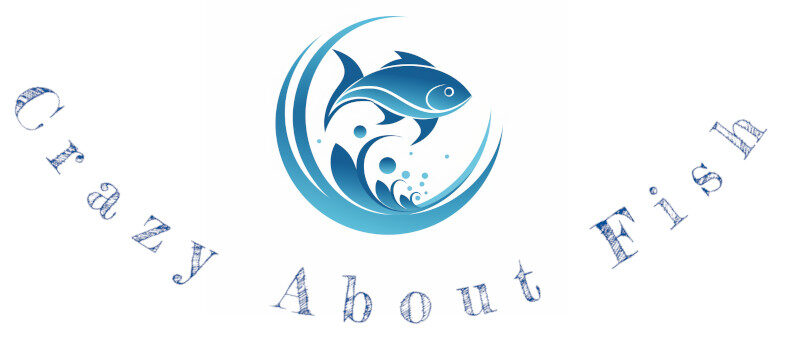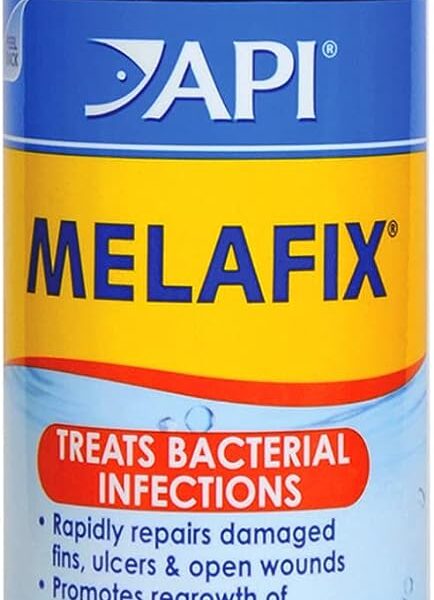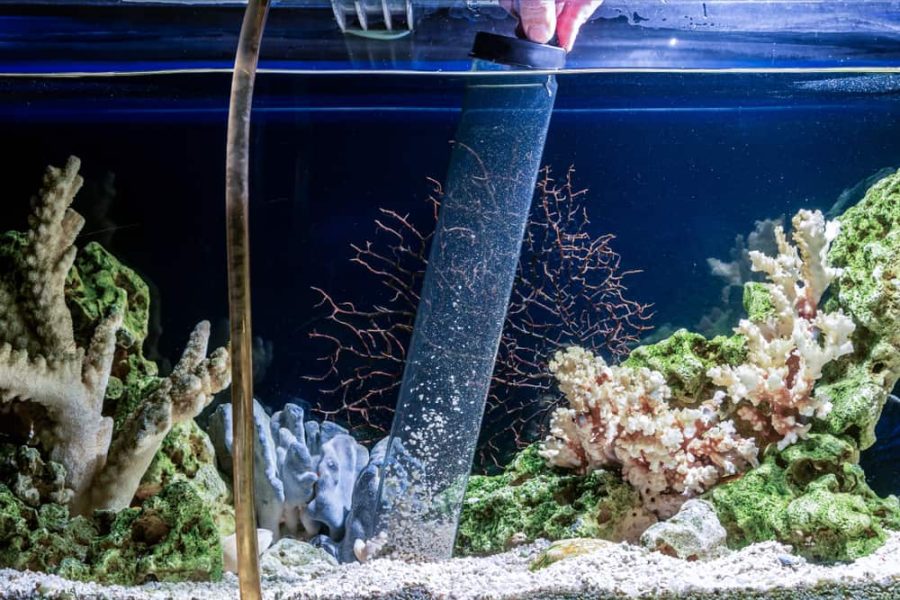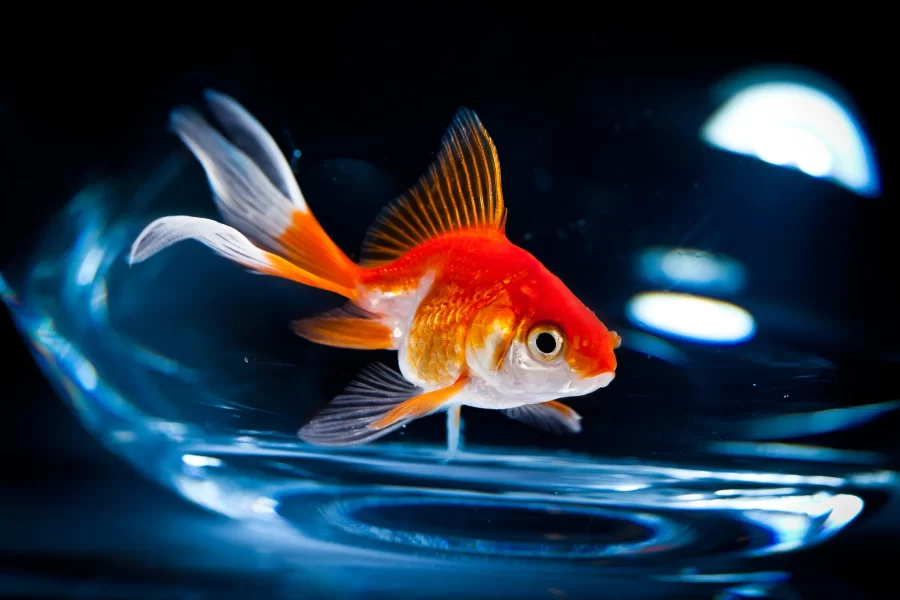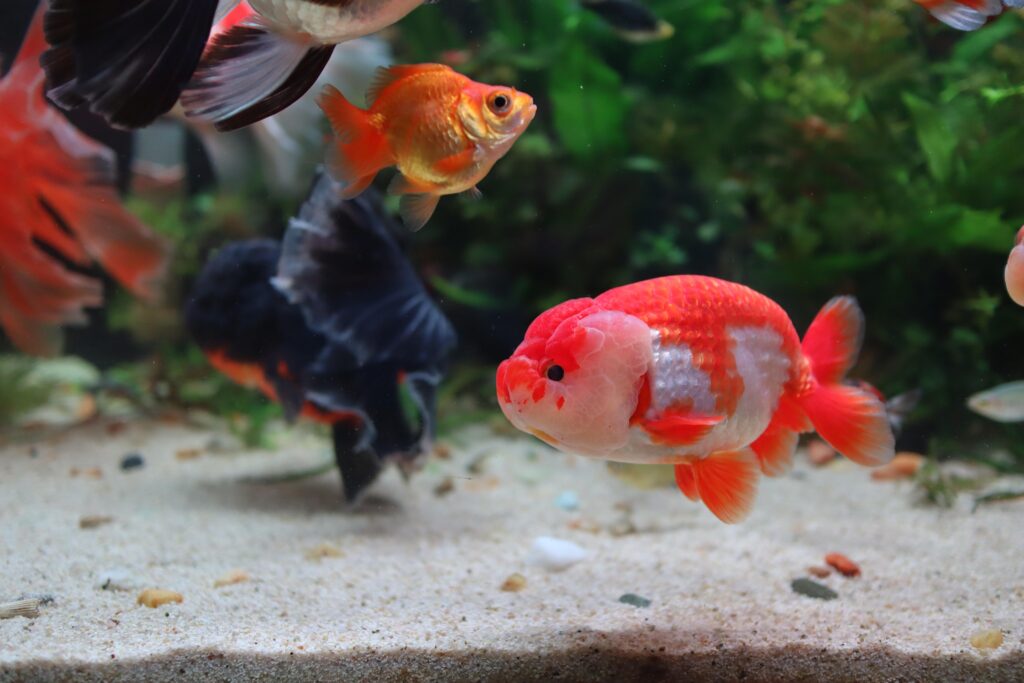
Is your goldfish losing weight faster than a celebrity on a juice cleanse? It’s a worry, we know. Seeing your little finned friend slim down can be as concerning as finding your cat on a treadmill.
But panic not, fellow fish-parents! We’re here to explore the nitty-gritty of goldfish weight loss. Together, we’ll uncover the causes, discuss the remedies, and figure out when it’s time to call in the fish-doc. So, let’s dive in, shall we? Because in the world of goldfish, ‘scale’ is more than just a matter of size – it’s about health too!
Identifying of Goldfish Losing Weight
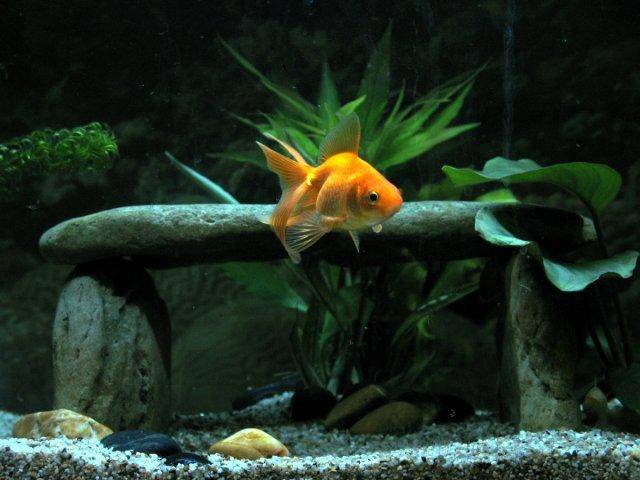
Just like us humans, goldfish too can shed those extra grams. But unlike us, it’s usually not something to celebrate.
Signs of Goldfish is Losing Weight
You know how you start noticing those loose pants after weeks of hitting the gym? Bet you’d never thought you’d be doing the same with your goldfish! But here we are! Key signs to notice include a loss of color and vitality, a thinner appearance, or in severe cases, even hollow bellies. Keep your eyes peeled for a drastic change in behavior too, such as reduced appetite or lethargy.
How to Properly Weigh Your Goldfish
Now don’t place your goldfish on a scale just yet! That’s a fishy business we don’t advise. Instead, keep a close watch on its visual attributes and behavior. These subtle clues steering toward weight loss are your best scale in this case.
Now that we’ve figured out how to spy on our little aquatic friend’s weight, let’s dive into the reasons why they might be losing weight. Trust me, they’re not trying to fit into a smaller tank tube! Let’s take the plunge, shall we?
Common Causes of Goldfish Losing Weight
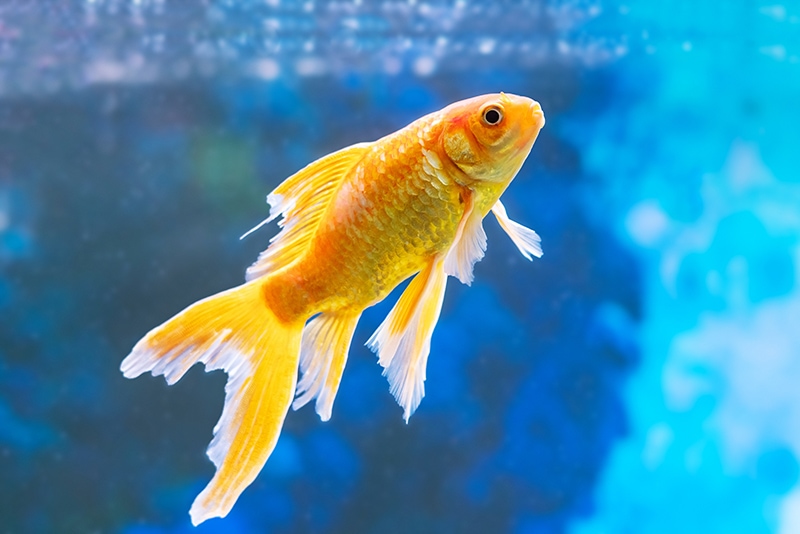
Now that we’ve identified how to spot weight loss, let’s delve into why this may be happening. Goldfish don’t lose weight for the fun of it, (though wouldn’t that be a hoot?). There are a few common culprits to be aware of that could send your fishy friend into waistline-wilt mode.
Poor Diet and Nutrition
First off, your goldfish may be the aquatic version of a “junk food junkie.” Just like us humans, they need a balanced diet and proper nutrition. Goldfish can’t feast on pizza everyday, as tempting as it is. If you’re feeding them low-quality food, they might lose weight. It’s akin to us subsisting solely on popcorn—tasty, but not exactly nutritional.
Stress and its Effects
Secondly, believe it or not, goldfish can stress-eat… or avoid eating due to stress. Just like when we stress out over paying bills, your goldfish may stress over changes in their tank or absence of their fish mates. It’s startling to see how much we have in common, no? Stress can either lead to unhealthy overeating or starvation, both can result in weight loss.
Presence of Disease or Parasites
Finally, diseases or parasitic invaders could be the problem. It’s grim, I know, but a fish gotta swim in the sea, and sometimes, unwanted guests come aboard. Parasites can cling onto your goldfish, draining nutritional resources and causing weight loss. Diseases can also affect the fish’s ability to eat, equating to a thinner goldfish.
And so, we’ve established the key reasons behind your goldfish’s weight loss. But worry not, dear reader, for every problem there’s a solution. As we move on to the next section, we will discuss how to help your goldfish gain weight. Stay tuned for tips on the perfect diet, goldfish gym workout routines and more. Buckle up and prepare for a deep dive into plumping up your dear goldfish. Let’s turn your skinny Minnie into a well-fed Freddie!
Steps to Help Your Goldfish Gain Weight
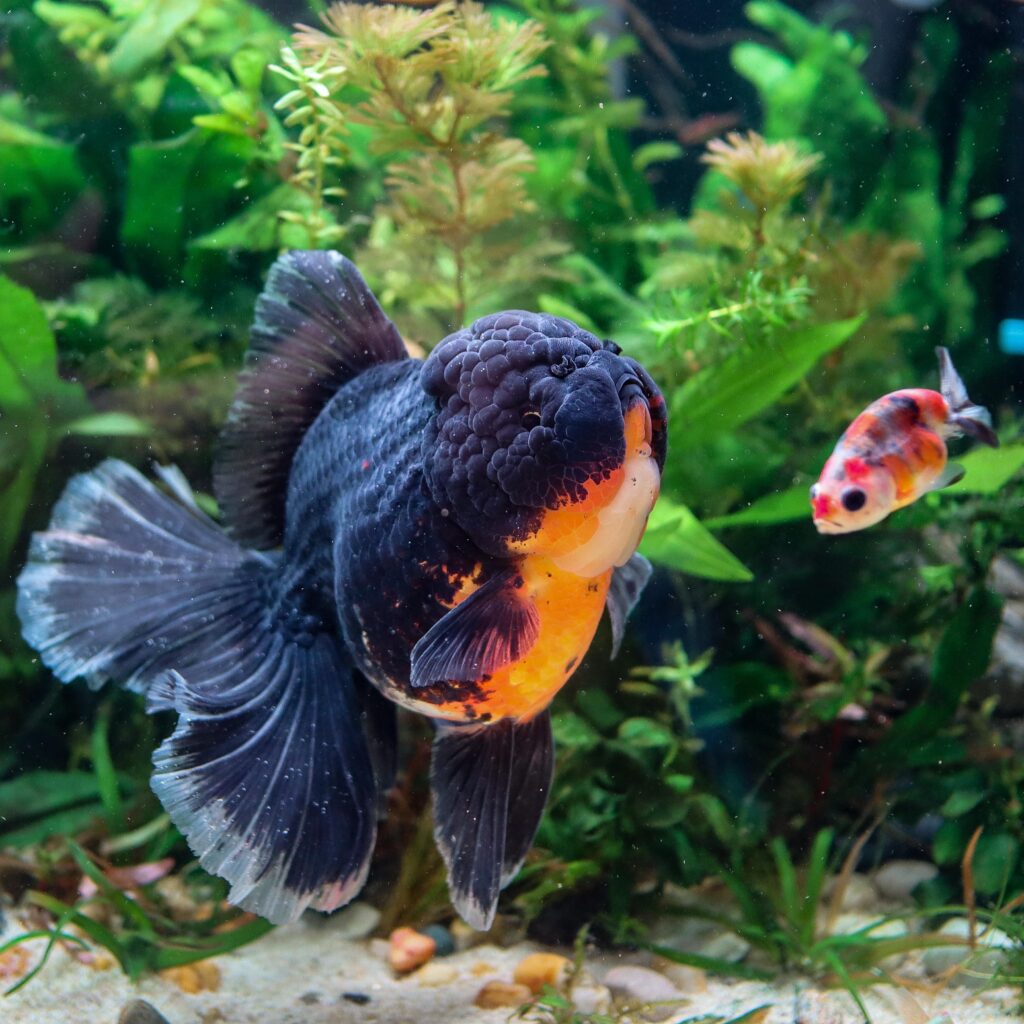
Now that we’ve identified possible causes, let’s pivot to solutions. I know your goldfish is practically family (mine are like my little, water-bound children). We want to keep them healthy and happy. So, let’s dive into the steps for getting your weight-challenged, finned friend back to optimal health.
Proper Feeding Routine for Goldfish
Who doesn’t love a tasty treat at all hours of the day? Oh, just me then? Your goldfish might beg to differ. Overfeeding is a common misstep. But hold on, don’t suddenly starve them either.
Two small meals a day can keep your goldfish content and healthy. Aim for early morning and late afternoon feeds. This mirrors their natural scavenging habits.
Choosing the Right Nutrition-Packed Foods
Goldfish food isn’t one size fits all, much like clownfish aren’t that funny and Finding Nemo is a lie. Fun fact: goldfish have dietary preferences based on their breed. Some enjoy flake foods, others do a dance for pellet food. Heck, some even like the odd veggie or two.
Find out your fish’s preferences. Then make sure their meals are nutritionally balanced. A weight-gaining diet should have protein, carbohydrates, a touch of fat, vitamins, and minerals. That’s one fancy fish meal right there.
Importance of Regular Exercise
Yes, you heard that right. No, I’m not kidding. Goldfish gym memberships are not yet a thing (but who knows about the future?). Exercise for goldfish isn’t like a hamster wheel or a cat with a laser pointer. Simply put: More room to swim equals more exercise.
Upgrade to a larger tank if you haven’t already. Encourage your goldfish to explore new terrains. Use tank decorations or play hide and seek with their food.
Now that we’ve navigated the weight-gain routine for goldfish, it’s important to know when professional help is needed. Next up, we’ll touch on when it’s time to seek an aquatic vet (yes, they exist!).
When to Seek Professional Help
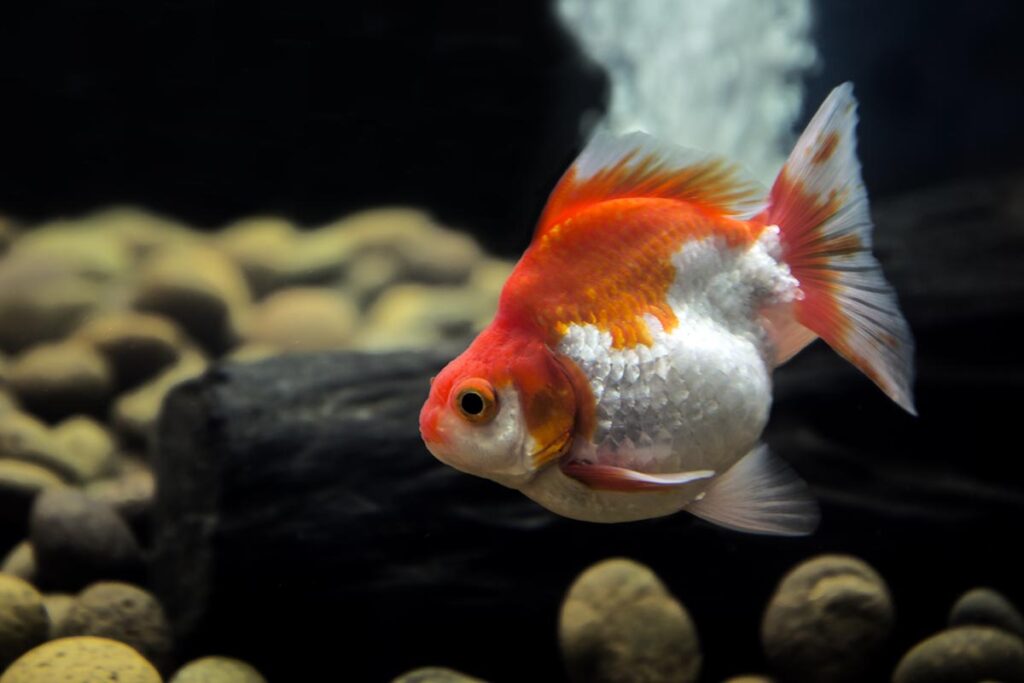
As much as we fancy playing fish doctor, there are times when you need actual professional help. When is the right time, you ask?
Persistent Weight Loss Despite Efforts
We’ve all been there. Change the diet, fix the tank and yet, your goldfish seems to be channeling its inner Twiggy. Despite your best efforts, the weight loss persists. In this situation, don’t beat yourself up. It’s time to consult a veterinarian with an aquatics specialty. Their intervention may be just what your slimmish goldfish needs.
Signs of Severe Illness
Alright, folks. We’ve arrived at a critical junction in our goldfish weight loss journey. Upon witnessing severe symptoms like erratic swimming, loss of appetite, or changes in coloration, it’s time to call in the big guns. Don’t hesitate, seek professional help right away.
To Sum Up
If you’re having a “goldfish crisis” due to your beloved’s weight loss, know you’re not alone. Recognizing signs of weight loss is vital; and on the flip-side, you’ll learn weighing a goldfish isn’t as challenging as it seems.
Beware, common causes can slip through your watch, including a poor diet, a stressful home (yes, goldfish have feelings too!), or creepie-crawlies. Adopting an apt feeding routine, sprucing up the diet with nutrition-packed foods, and engaging your finned friend in regular exercise can help it regain weight.
Yet, be mindful of persistent weight loss or signs of severe illness surfacing. If your goldfish could speak, it’d probably whisper, “Please, take me to the doctor!” When suspected, don’t hesitate to seek professional help – there’s never shame in admitting that we need a hand to lift our goldfish up.
Frequently Asked Questions (FAQ)
Question: How can I tell if my goldfish is losing weight?
Answer: Look for signs such as visible rib cage, sunken eyes, and decreased appetite. If your goldfish is less active or its scales seem to be sticking out, this might be a sign of weight loss.
Question: Can stress cause weight loss in goldfish?
Answer: Yes, stress can impact a goldfish’s appetite and metabolism, possibly leading to weight loss. Causes of stress can include changes in water conditions, overfeeding, and even loud noises.
Question: What should I feed my goldfish to help it gain weight?
Answer: Provide a balanced diet with a variety of foods, including high-quality pellets, live or frozen foods like brine shrimp and bloodworms, and vegetable matter like peas or spinach.
Question: How much exercise does a goldfish need?
Answer: In an appropriately sized tank, goldfish will naturally ‘exercise’ by swimming around. You don’t need to make your goldfish do laps, although adjusting the tank setup to encourage more swimming can be beneficial.
Question: When should I seek professional help for my goldfish?
Answer: If your goldfish continues to lose weight despite improvements in diet and environment or if it shows signs of severe illness such as lethargy, loss of color, or noticeable wounds, it’s time to consult a veterinarian.
